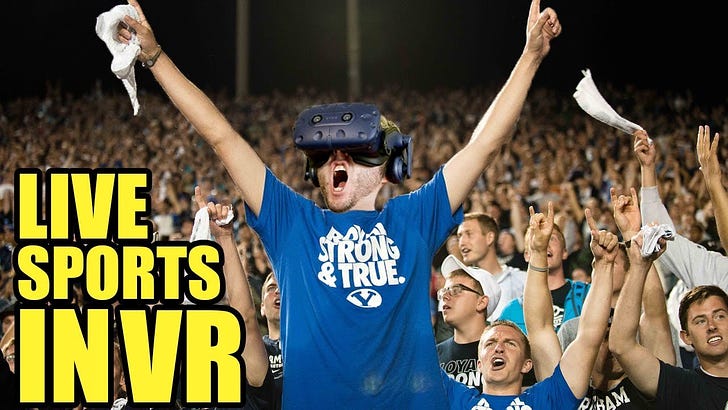I remember when we first got cable. It’s intwined so deeply with my love of baseball. It came at just the right time and gave me three channels that showed baseball regularly - WOR (Mets), WTBS (Braves), and WGN (Cubs). The green grass of Wrigley, even in standard definition, won me over and then their new third baseman locked me in.
Years later, cable is dying, streaming isn’t doing so well, and the RSN’s are leading the way. Ben Clemens from Fangraphs has the details and some analysis on what this means for baseball. I wish it meant that Sinclair was going away, but bankruptcy doesn’t mean what you think it does these days. The revenue lost will be slightly painful, but not problematic for teams overall.
In fact, this might come at just the right time. Diamond Sports was never a great deal for baseball and tied them to a dying model, but they also didn’t jump into a streaming model that didn’t work either or was destined to do the same. Instead, they have options, and more.
The first option is to just do this themselves, buying back the rights, dumping the middleman, and selling it as the version of MLB.tv that everyone always hoped would come. The downside here is that MLB.tv has always relied on the local telecasts, so there’d be much greater production costs, but manageable and amortizable as well. Teams would basically do what they did with MLBAM, and have the same kind of potential for profit and at worst, some more tax write-offs.
The second option is to follow the NFL and take a larger national package to a streamer. MLB toyed with this, using two small packages with Peacock and Apple to experiment and learn. Where the NFL uses Sunday Ticket as the “everything else” plan, MLB could do the same, especially if YouTube or someone were willing to take on some production cost. It’s a much bigger job with a lower return, but someone with a forward thinking, fan-focused effort could grow the game and their return.
Finally, MLB could skip a generation and go to AR/VR. Meta and Sony haven’t cracked the market, but they’ve done enough to show plausibility. I had a Oculus Quest and one of the few usable apps was one that put me courtside for an NBA game. It actually felt like I was there. It was basically a one camera set up, with no play by play, so the costs were next to nothing.
(Seriously, watch the video. It’s not the same as the VR experience, but gives you an idea if you haven’t seen it.)
If the Apple VR rumors are true, this could be the killer app. I’ve heard one rumor that Apple will do movies and TV on an IMAX-sized virtual screen and that could work, especially with the right sound. While TVs are cheap and people are talking about the Apple VR initially being in the thousands, Apple’s always been good about bringing products in well under the rumors. (My guess is, they seed some of these.)
Apple is already doing a full production of all MLS games, so they’ve shown a willingness to go big. For 99 bucks a year, it’s a pretty compelling value. What would an MLB package like this have to cost? Two times? Three? I don’t think anything north of $299 works, but this is where VR might be a better fit than “stream every game!”
Instead, sell tickets. MLB teams already do this. Put a VR camera in ten locations - ten seats! - and then you pay that price to watch that game. MLB teams could be greedy and charge standard prices, or they could charge a tenth and sell hundreds, making more money. Let’s say for simplicity that I could buy a ticket for any game (live or recorded) for $1, $2, or $5. For five, I get that premium view, maybe an ability to move around, plus replays on demand. For two, I’m in a good seat, but I don’t get all the extras. For a buck, find a way to make it fun. Put the camera in the Yankee or Wrigley bleachers. Sit next to John Adams in Cleveland, bless his soul. Put a camera on the Phillie Phanatic and that’s your “seat” for the game. There’s ways to be very creative with this, or simple.
Sure, maybe there’s a season ticket for every one of your team’s games, even on the road, or a golden ticket where it’s any game, any time. Worse, MLB could be greedy and charge live prices for VR experience. There’s an argument here - it’s not far off, there’s no ancillary costs, there’s timeshifting, but it’s not limited either, so being greedy would mean being very, very greedy, especially when VR headsets aren’t widely adopted or affordable to start.
Again, there’s lots of ways to do it and MLB could be in the lead on this. MLB already has the advantage of VR takes on games. You can easily bat against Justin Verlander, but how do you become Patrick Mahomes, kick like Messi, or shoot like Luka Doncic? There’s opportunity on the horizon and maybe the road to Cooperstown starts off in Cupertino.





As an old “Boomer”, you have given me a lot to think about. Thank goodness there is still radio...!